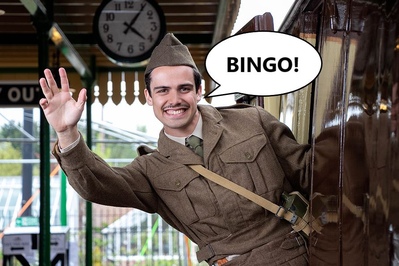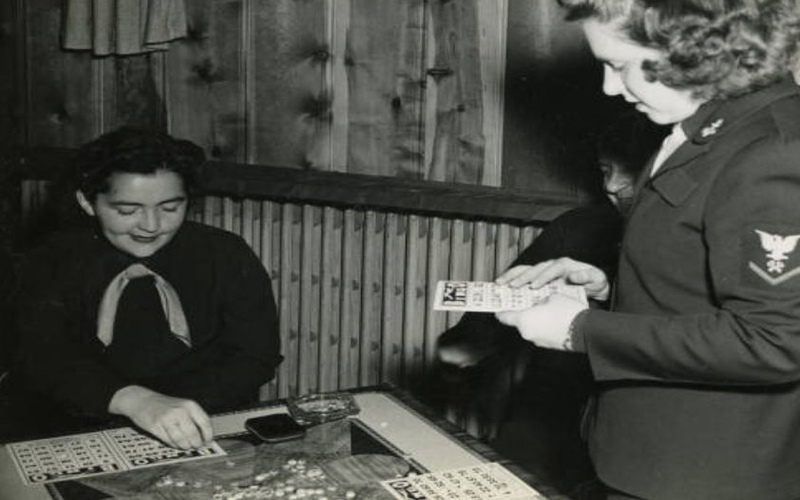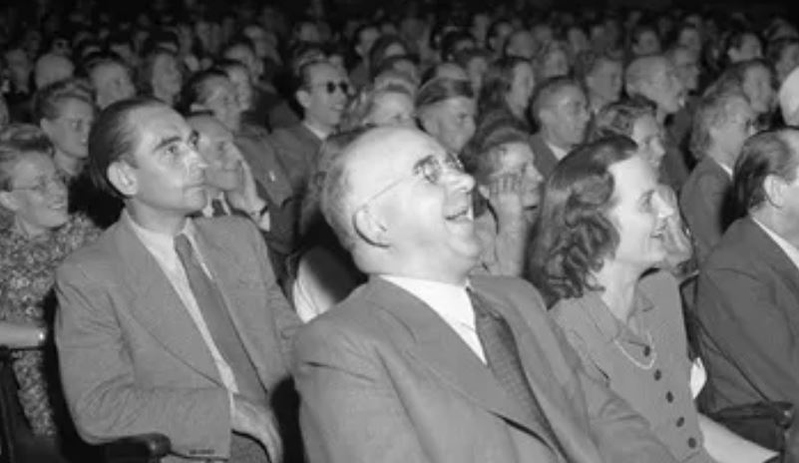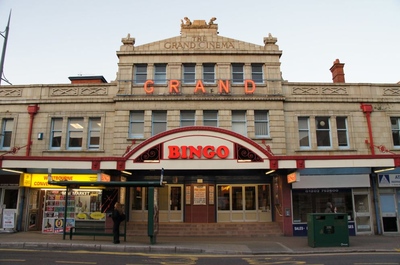 We would all probably agree that World War 2 was a terrible and tragic global event, and no doubt many of us are directly related to people who took part.
We would all probably agree that World War 2 was a terrible and tragic global event, and no doubt many of us are directly related to people who took part.
However, the game of bingo enjoyed something of a boom in popularity during these awful years, doing its’ bit to keep up morale by providing soldiers and civilians alike with something light hearted and fun to keep them occupied when the rest of the world seemed so bleak and hopeless.
The enjoyment of the game during this time also did a lot to secure its’ place in the British hearts and minds for years to come though, and it is distinctly possible that it may not have endured in the way it has today had it not been for this most difficult period.
So how did the wartime bingo boom happen, and what was the impact?
Playing Bingo During the War

What with rationing in place, the blackout, air raids and many of the men folk shipped off to fight, it’s fair to say that entertainment options were few and far between in the early 40s.
Pubs were still open it’s true, and variety style shows were still being held as well as some early cinema, but these things were not as readily available or in as great supply as they are these days.
People needed to find their own fun in their local communities, and for many, bingo proved to be the perfect solution.
Not only was it fun, accessible to all generations of the family, and easy to set up and run a game, but it also provided the opportunity to maybe win something nice.
There weren’t always prizes, but when there were the prizes wouldn’t just be limited to money. You might find yourself winning goods and services too.
Operation Bingo
Fun Fact – In 1944, the Americans completed a bombing mission to disrupt the German’s rail capabilities between Austria and Italy, and it was codenamed Operation Bingo.
For civilians who may be cooped up in an underground air raid shelter for the night, or who might need something to do after being bombed out, bingo was a cheap and cheerful way to lift the spirits and pass the time.
For large groups of soldiers, who may spend very long periods of time waiting for orders, or on transport ships, it was equally useful – although smaller groups may have opted for something a little harder such as card games, or dice.
Nevertheless, bingo spread like wildfire through the British and American populations, with soldiers even picking up trends from one side of the Atlantic and telling their friends and family on the other.
Origins of Bingo Calls

This period was also when many of the famous bingo calls we refer to today were introduced – although they aren’t used in proper bingo halls anymore, but still crop up in community and charity games.
Linking in with the music hall style of entertainment that was popular in the day, bingo callers would introduce a bit of comedy or silly rhyming to their calls, which players would enjoy so much that sometimes they even came up with responses.
“Legs 11” followed by a wolf whistle from the players is the most obvious example.
We are sure that many different calls were trialled, but the ones that stuck were passed around and adopted by other callers, until eventually there was a list of commonly used phrases to go with each number.
Some, like ‘two little ducks 22’ or ‘two fat ladies 88’, referred to the way the numbers looked; while others, such as ‘buckle my shoe 32’ and ‘clickety click 66’, were simply satisfying rhymes.
Others came later of course – ‘Dancing Queen 17’ would not become a staple call until after ABBA’s famous song, for example – but it was the fun callers had with the numbers during the war years that set the whole thing off.
Enduring Popularity

This combination of factors took a game that was perhaps already modestly popular and sent it nationwide, with almost everyone in the country having played during the war years, and interested in continuing to play once peace time came along.
Savvy businessmen were all too happy to provide this service and people came in their droves, looking for ways to enjoy themselves and spend time together, with large cash prizes becoming a more common sight too.
It could even be argued that the reason so many older people still played the game in the 90s and early 2000s was because they had developed a liking for bingo during WW2 and the years after, which had not subsided decades later.
We have another article on the post war boom though, so if you want to know more you should head over to that one and continue the story.
